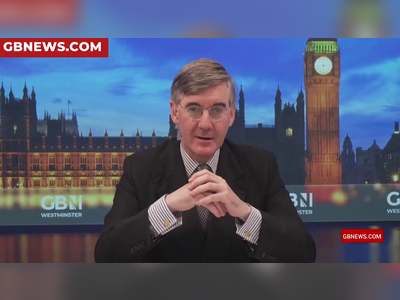
Leaked Document Reveals Binance’s Elaborate Scheme To Evade Regulators
Cayman Islands-based Binance is currently responsible for about $10 billion in total crypto trades per day and its founder and CEO Changpeng “CZ” Zhao is one of the few known cryptocurrency billionaires.
The 2018 document details plans for a yet-unnamed U.S. company dubbed the “Tai Chi entity,” in an allusion to the Chinese martial art whose approach is built around the principle of “yield and overcome,” or using an opponent’s own weight against him.
While Binance appears to have gone out of its way to submit to U.S. regulations by establishing a compliant subsidary, Binance.US, an ulterior motive is now apparent. Unlike its creator Binance, Binance.US, which is open to American investors, does not allow highly leveraged crypto-derivatives trading, which is regulated in the U.S.
The leaked Tai Chi document, a slideshow believed to have been seen by senior Binance executives, is a strategic plan to execute a bait and switch. While the then-unnamed entity set up operations in the United States to distract regulators with feigned interest in compliance, measures would be put in place to move revenue in the form of licensing fees and more to the parent company, Binance.
All the while, potential customers would be taught how to evade geographic restrictions while technological work-arounds were put in place.
Forbes reached out to Binance founder CZ as well as its chief compliance officer Samuel Lim about the leaked document and didn’t receive a response to our questions. Binance.US CEO Catherine Coley and Harry Zhou, the person identified as creating the document, also didn’t comment. [After the article was published CZ responded with several tweets claiming that the story was incorrect and that the document was not created by a current or former employee. He further wrote that “Binance has always operated within the boundaries of the law.” Ed note: Chief compliance officer Lim had previously sent an email to Forbes confirming that Zhou had been a Binance employee.]
The source of the document, whose identity we’ve agreed not to reveal, says it was first presented to CZ in Q4 2018 by Binance mergers and acquisitions manager Jared Gross, an attorney who Forbes believes is actually the exchange’s general counsel.
The source says the document was created by former Binance employee Harry Zhou, a serial entrepreneur, who is the co-founder of Koi Trading, a San Francisco-based cryptocurrency exchange partially owned by Binance. The file is named “Presentation 2” so there may have been other strategies being considered. Still, an analysis of the document reveals that many of the specifics outlined within it, are already in place.
“U.S. Enforcement Mitigation”
The strategy document has four main components, Goals, Proposed Corporate Structure, Regulator Engagement Plans and Long Term License Plans. The first goal, enforcement mitigation, is designed to minimize the impact of U.S. regulation. It explicitly mentions the need to undermine the ability of “anti-money laundering and U.S. sanctions enforcement” to detect illicit activity.
More specifically, it describes a detailed strategy for distracting the U.S. Treasury Department’s Financial Crimes Enforcement Network (FinCEN) and Office of Foreign Assets Control (OFAC), the Securities and Exchange Commission (SEC), the Commodity Futures Trading Commission (CFTC), and the New York Department of Financial Services (NYDFS).
To do this, the document advocates for participating in the U.S. Department of Homeland Security (DHS) Cornerstone Program for detecting weaknesses in the financial systems. A representative of the Department tells Forbes that Binance.US did participate in the Cornerstone program, as a standard part of the process of becoming a Money Service Business, but declined to comment further.
Interestingly, Binance itself is now a client of the DHS-funded CipherTrace, based in Menlo Park, California, one of the first security firms with technology explicitly designed to investigate on-chain transactions of the exchange’s own cryptocurrency. Another CipherTrace client is the U.S. Securities and Exchange Commission, which signed a one-year deal with CipherTrace this July.
While the SEC declined to comment as to whether or not its engagement of CipherTrace was part of a larger investigation into Binance or Binace.US, the contract explicitly states that one of the main reasons for selecting CipherTrace is it is “the only known blockchain forensics and risk intelligence tool that can support the Binance coin (BNB) and all tokens on the Binance network.”
“Insulate Binance from US enforcement”
The proposed corporate structure section starts off with a bold bullet point, “Key Binance Personnel continue to operate from non-U.S. location to avoid enforcement risks.” In the same section the document details how the Tai Chi entity would act as a magnet for regulatory inquiries, and should be willing “to accept nominal fines in exchange for enforcement forbearance.”
Though not readily apparent, the document reveals that the Cayman Islands-based holding company will be connected to an unnamed Delaware C-corporation and the separate Tai Chi entity (see image above), showing how revenue from the U.S. business could be funneled back to Binance, the parent company. “License and service fees paid by the US Service company to Binance are functionally US-sourced trading fees,” the document states.
But unlike an actual subsidiary whose parent company could be held accountable for regulatory violations, the Tai Chi entity would have little more than a contractual relationship, further “insulat [ing] Binance from U.S. enforcement,” according to the document. Essentially, it would be a decoy.










